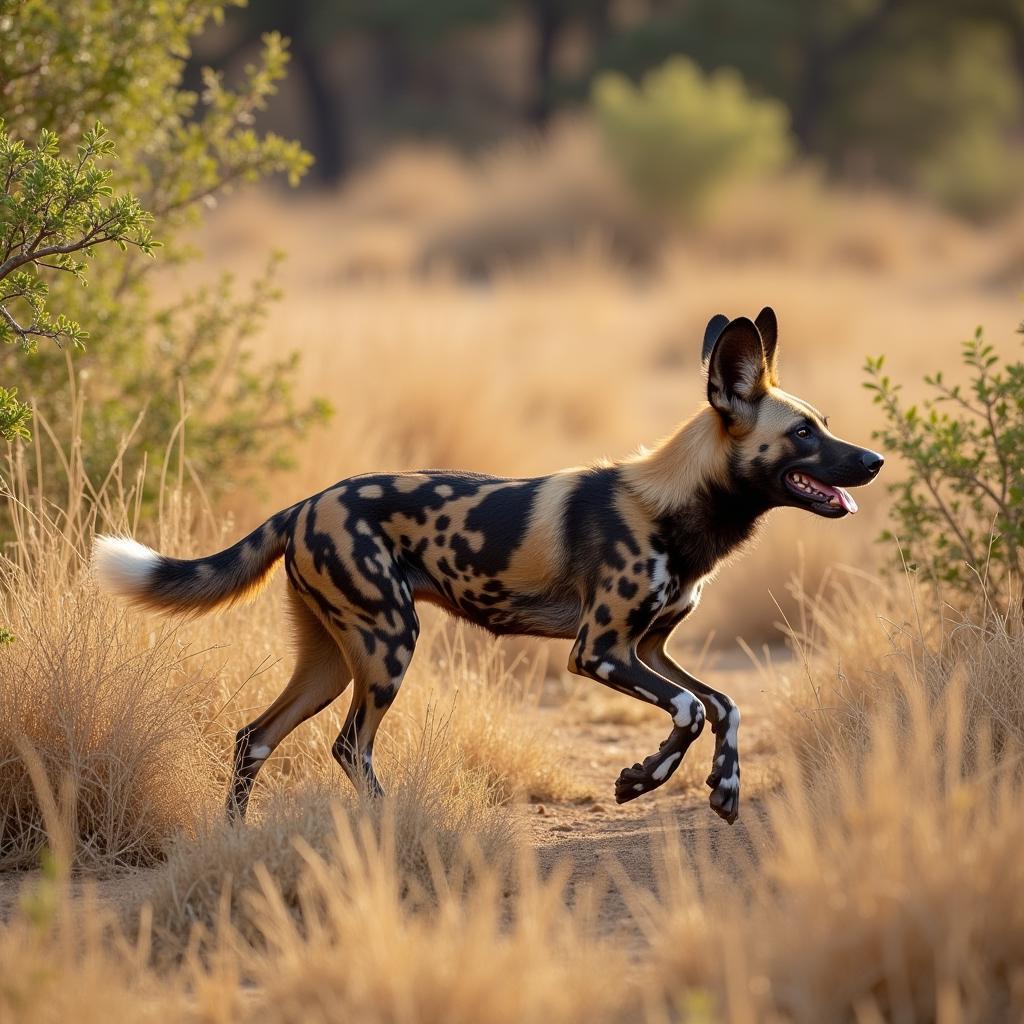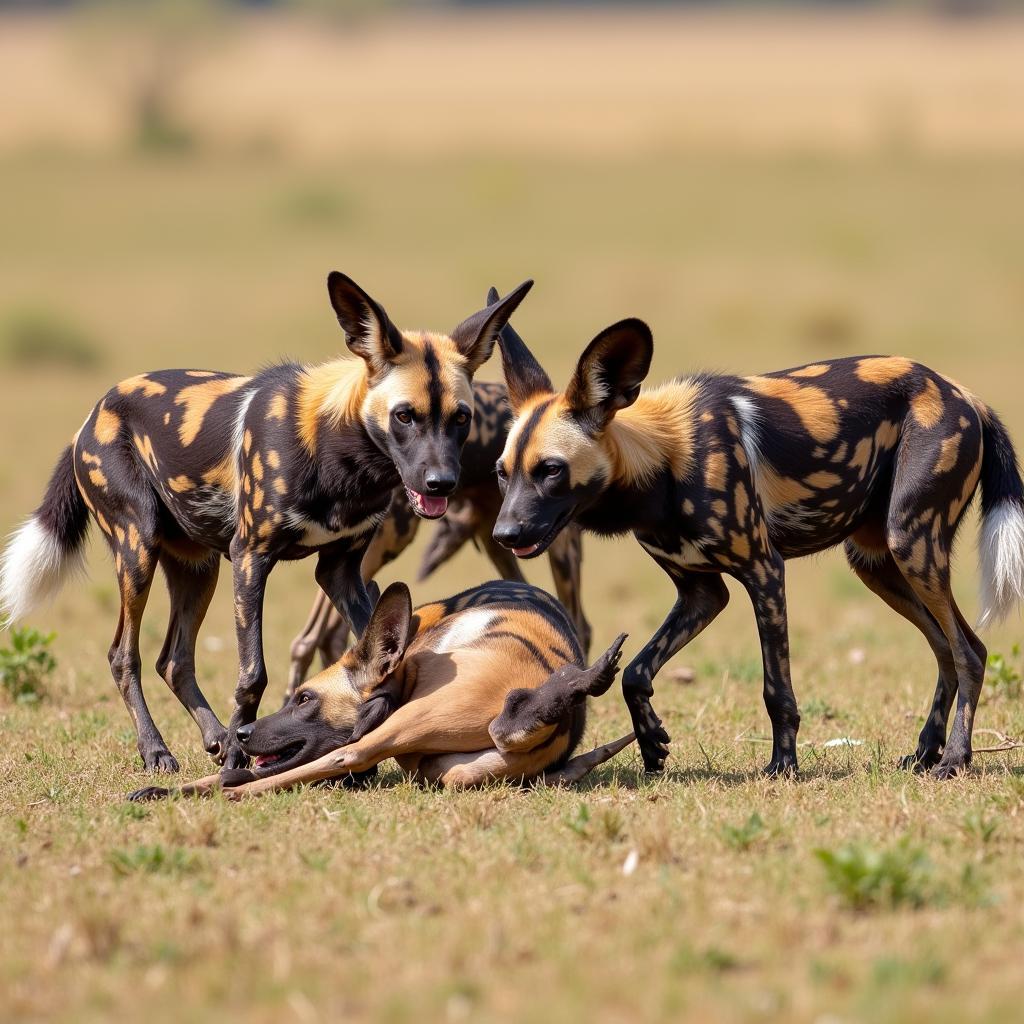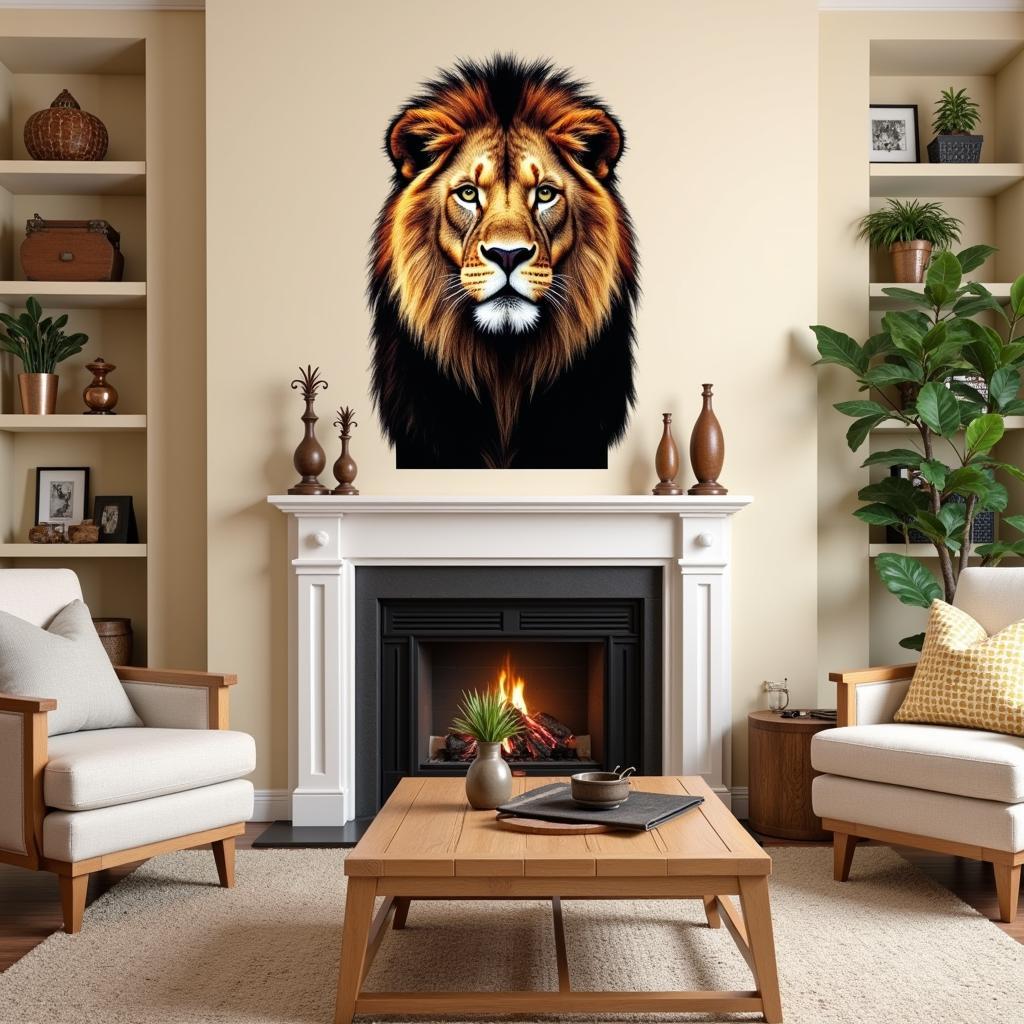African Wild Dog: The Painted Wolves of Africa
The African Wild Dog, also known as the painted wolf, is a highly endangered carnivore that roams the savannas, grasslands, and woodlands of sub-Saharan Africa. These striking canids are known for their incredible hunting prowess, complex social structure, and of course, their beautiful, mottled coats.
A Splash of Color on the Savanna: Appearance and Adaptations
Unlike any other canine, the African wild dog boasts a truly unique and vibrant appearance. Their short fur comes in a patchwork of colors, with no two individuals sharing the same pattern. Patches of black, brown, yellow, white, and even red adorn their bodies, providing excellent camouflage in dappled light.
 African wild dog running through tall grass
African wild dog running through tall grass
Their slender bodies, long legs, and large, rounded ears are perfectly adapted for a life of pursuit. These physical attributes contribute to their incredible stamina and speed, allowing them to chase down prey over long distances.
Masters of the Chase: Hunting and Diet
African wild dogs are formidable hunters, boasting one of the highest hunting success rates in the animal kingdom. Unlike many predators, they rely on teamwork and endurance to secure their meals.
 African wild dog pack hunting
African wild dog pack hunting
Packs work together to strategically chase down their prey, which primarily consists of antelopes like gazelles and impalas. Their relentless pursuit, often lasting for miles, tires out their quarry, making it easier to bring down.
A Family Affair: Social Structure and Communication
African wild dogs are highly social animals, living in packs that can range from just a few individuals to over 20. Packs are typically led by an alpha pair, which are responsible for breeding.
Communication is key to their success. A complex system of vocalizations, including whistles, barks, and chirps, helps them coordinate hunts, warn of danger, and maintain pack cohesion.
Unlike other dominant canids, African wild dogs demonstrate remarkable altruism. When pups are born, the entire pack participates in their care, regurgitating food to nourish the young.
Facing the Threats: Conservation Challenges
Sadly, these remarkable creatures face a number of threats to their survival. Habitat loss due to human encroachment, disease outbreaks like rabies and canine distemper, and conflict with humans over livestock have all contributed to their decline.
A Future for the Painted Wolves?
Conservation efforts are underway to protect this iconic species. Initiatives focus on mitigating human-wildlife conflict, establishing protected areas, and raising awareness about the importance of their conservation. The African wild dog’s future remains uncertain, but with continued dedication and collaborative action, there is hope for these vibrant inhabitants of the African plains.
Frequently Asked Questions about African Wild Dogs
-
What is the difference between an African wild dog and a painted wolf? These are two names for the same animal. “Painted wolf” is a more descriptive name, highlighting their unique coat patterns.
-
Are African wild dogs dangerous to humans? Attacks on humans are extremely rare. They are generally shy and avoid contact with people.
-
How can I help protect African wild dogs? Supporting conservation organizations working in their range, raising awareness about their plight, and advocating for responsible tourism practices are all ways to contribute.
-
Where can I see African wild dogs in the wild? National parks and reserves in several African countries, including Botswana, Tanzania, and South Africa, offer opportunities to observe these elusive creatures in their natural habitat.
-
What is the average lifespan of an African wild dog? In the wild, they live for an average of 6-8 years, but they can live up to 10 years or more in protected areas.
For any further assistance, feel free to contact us at:
Phone Number: +255768904061
Email: kaka.mag@gmail.com
Address: Mbarali DC Mawindi, Kangaga, Tanzania.
Our customer care team is available 24/7.
